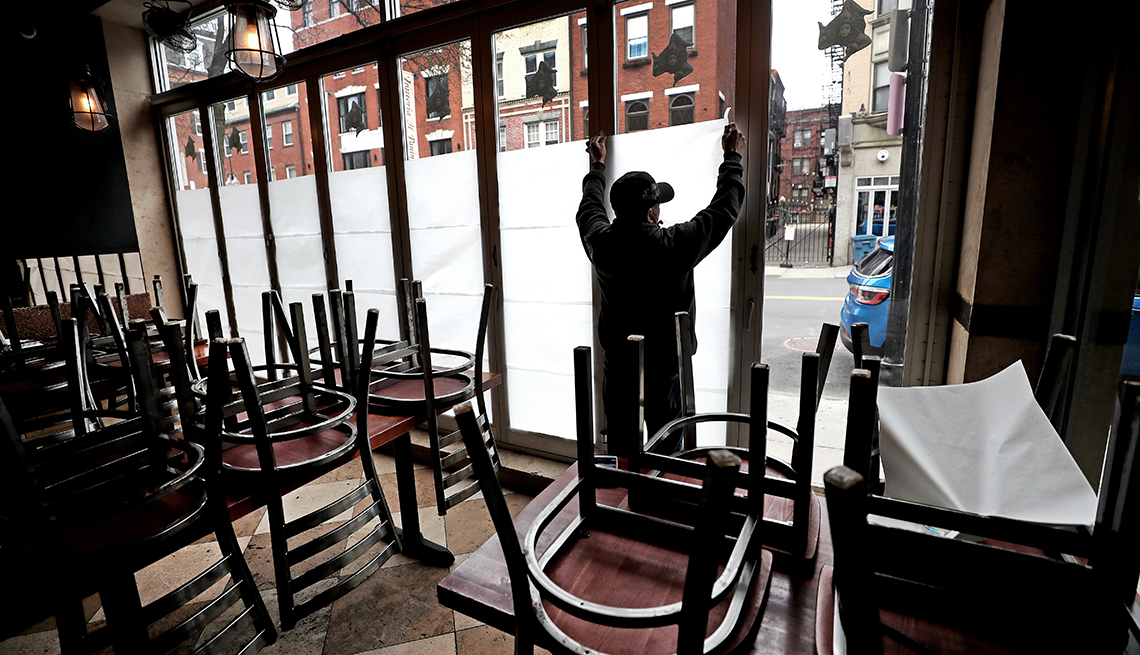
Coronavirus' economic impact on older workers
- Select a language for the TTS:
- UK English Female
- UK English Male
- US English Female
- US English Male
- Australian Female
- Australian Male
- Language selected: (auto detect) - EN
Play all audios:

Many older workers earn paychecks in hospitality, food and beverage, child and elder care services, retail, and health care. These service industries also are unlikely to provide paid sick
or extended paid family caregiving leave. The emergency coronavirus bill passed in mid-March does require certain businesses to provide employees with paid sick leave or expanded family and
medical leave for specified reasons related to COVID-19. But the package doesn't cover all workers who may be caring for older relatives with the coronavirus, and the provisions are
only a temporary response to the pandemic, rather than a permanent change to paid leave requirements. The lack of sick leave hits low-income households hardest. Among the bottom 10 percent
of wage earners, two-thirds don't have paid sick leave, compared to just 7 percent without such leave among the highest earners. And the people in low-wage jobs without paid sick or
caregiving leave are more likely to be women and minorities. The $2 trillion stimulus bill also provides some relief to these workers, including expanded unemployment insurance. And some
states are implementing new paid sick leave policies for workers. Some large global companies in technology, retail and hospitality have voluntarily implemented paid sick leave policies for
hourly workers in response to the outbreak. But paid sick leave should not be a temporary measure in response to a global pandemic. Policymakers should ensure that all employees are provided
a reasonable amount of paid time off. The economic impact of the coronavirus extends to family caregivers. An estimated 24 million family caregivers — about 60 percent of family caregivers
of adults — are also working at a paying job. And half of employed caregivers are older workers themselves, age 50 and older, in their prime working years. These caregivers may need to take
time off from work if a spouse, parent or relative becomes ill from the coronavirus, meaning more lost wages. While the Family and Medical Leave Act requires some companies to provide unpaid
leave for certain employees to care for a family member, just eight states and the District of Columbia have enacted paid family leave programs that include paid time off to care for a
seriously ill family member. This crisis is still unfolding, and policymakers will need to take a long view. As new policies are developed, the focus should include helping workers regain
employment — and for older workers, protection from age discrimination — as well as expanding paid leave for employees across industries. _Ramsey L. Alwin is director of thought leadership
in financial resilience at AARP, working on issues related to economic security, the future of work, retirement and longevity._ _Jen Schramm is a senior strategic policy adviser in the AARP
Public Policy Institute working on policy challenges and opportunities related to workers age 50-plus._
